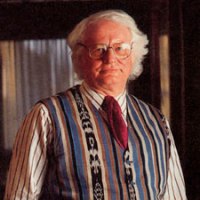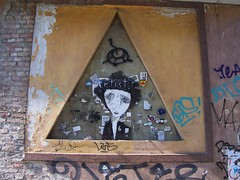A HOLOGRAM FOR THE KING by Dave Eggers (First published by McSweeney’s, 2012)
 Dave Eggers is a person and a writer I admire a lot but I have to say that this is a strange, disjointed and largely disappointing novel.
Dave Eggers is a person and a writer I admire a lot but I have to say that this is a strange, disjointed and largely disappointing novel.
Set in the present day, it follows the (mis)fortunes of an ageing salesman, Alan Gray, who is in Jeddah, Saudi Arabia heading up a small team of IT consultants. He, and his three younger assistants, work for Reliant “the largest IT supplier in the world”.
They are there to demonstrate, and hopefully sell, some state of the art “telepresence technology” – a virtual hologram mirage that gives the illusion that someone is physically present at a meeting when they are actually elsewhere.
The prestige client is the King of the King Abdullah Economic City (KAEC) a place described as “a city-to-be in a desert by the sea”.
The location is exotic and Alan is intrigued to be in some small way part of the ambitious plan to build a city in the desert – “he wanted to believe that a city rising from dust could happen”.
But waiting for the King proves to be like waiting for Godot, which presumably explains why Eggers’ chose a quote from Samuel Beckett as the novel’s epigraph – “It’s not every day that we are needed”.
We learn from the outset that Alan is a man lacking in courage and direction. While we don’t expect any heroics it would have been nice if he showed a little more spark. Hanne, a Danish woman, flirts with him yet finds him unresponsive and likens him to a hollow man, saying he seems defeated. You can only agree with this damning assessment.
Alan is 54, an age grimly identified as being “old enough to die without feeling too much consternation”. Mortality becomes a major issue for him when he discovers a growth on the back of his neck which might be connected to his spinal cord and might be a sign of cancer. Fear of the grim reaper causes him to evaluate what he has achieved in his life so far and what he finds ain’t pretty – “he hadn’t done anything for years – or ever”.
He is desperate to retain some sense of optimism but all the time is fearful that a creeping malaise is enveloping him, making him feel irrelevant and superfluous. He’s desperate to leave behind some meaningful legacy but is burdened by a “stasis of nostalgia and regret and horror” and turns to drink for liquid consolation.

Dave Eggers
Looking back he finds only a catalogue of sad memories and missed opportunities – the inexplicable suicide of a friend, a failed marriage and acrimonious divorce, a daughter he struggles to find a connection with and a business venture that never got off the ground.
The last of these was a dream he had of running a bicycle company, of building something solid, integral to people’s lives – “He knew what he wanted – strong simple bikes with clean lines, tons of chrome, everything built to last a thousand years and never look weary”. When he failed to get a loan he melodrammatically concludes that “the age of machines holding dominion over man had come”.
This sense that solid tangible qualities of life are being lost in our technological age is one of the running themes of the novel.
Alan loathes his father’s cynicism but the rants about how China is stealing a march on America seems a disconcertingly accurate explanation of the miserable state he finds himself in. In one telephone conversation, his Dad says “They’re making actual things over there and we’re making websites and holograms”.
Alan recollects a frustrated and disillusioned architect echoing the notion that America has somehow lost its sense of vision. The architect described how he was contracted to design tall buildings in Dubai, Singapore, Abu Dhabi and China. He tells Alan:“In the US now there’s not that kind of dreaming happening. It’s on hold. The dreaming’s being done somewhere else now”.
If Alan Clay were a dynamic man of action he would be able to prove both his father and this architect wrong but he’s not and he doesn’t.
He belatedly shows some stirring of sexual energy when he gets the hots for a young doctor Dr Zahra Hakem but if Eggers meant this encounter to symbolise the stoking of the flames of passion it fails miserably since it is described in this manner: “She smiled patiently. He collected himself. He knew he needed to kiss her. And then he would need to move himself atop her”. Atop her?! A man who thinks of sexual congress in such un-erotic terms is surely beyond hope.
And what of Saudi? It’s a potentially dramatic backdrop but what do we learn about the place? Very little other than that it’s very hot and dusty and the strict rules about dress codes, sexual manners and alcohol consumption are frequently ignored. In an interview with The Rumpus, Eggers admitted : “The book really isn’t about Saudi Arabia. It takes place there, but it could be any place where American multinationals might be doing business like this”.
There are some lively exchanges with Alan’s driver Yousef, the best character in the book. This offers an excuse to take the story out of the desert and up into the mountains but the point of this excursion was lost on me.
The premise of the novel is good and it starts promisingly but at some point Eggers seems to lose interest in the central idea. He goes off at tangents and returns to the hologram project almost as an afterthought.
Related articles
- A Hologram For The King by Dave Eggers (lahslibrary.wordpress.com)
- Review: A Hologram for the King, By Dave Eggers (independent.co.uk)
- A Hologram for the King by Dave Eggers – digested read (guardian.co.uk)
- A Hologram for the King by Dave Eggers (charlotte-booklog.typepad.com)
- Book Review: A Hologram for the King by Dave Eggers (thehungryreader.wordpress.com)
- Reviewed: A Hologram for the King by Dave Eggers (newstatesman.com)







